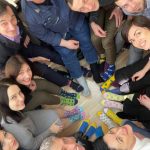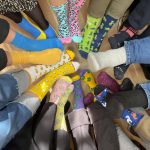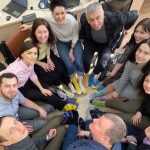March 21 – World Down Syndrome Day
Today, March 21st, on World Down Syndrome Day, we are joining the #LotsOfSocks initiative to express support for people with this genetic condition and their loved ones.
Throughout the world, events and initiatives are organized to raise awareness regarding people with Down syndrome, advocate for their rights, overcoming stigmatization, and foster inclusive environments.
The promotion of inclusivity stands as a fundamental ideological component within European framework programmes. One of the four key strategic orientations (KSOs) outlined in the Strategic Plan of the Horizon Europe research and innovation framework programme is: “Creating a more resilient, inclusive, and democratic European society, prepared and responsive to threats and disasters, addressing inequalities, and providing high-quality healthcare, while empowering all citizens to act in the green and digital transitions.”
Furthermore, it’s important to highlight that the establishment and support of an inclusive society are important topics within the thematic scope of Cluster 2: Culture, Creativity and Inclusive Society.
Down syndrome is a genetic disorder caused by the presence of an extra third chromosome in their 21st pair. The occurrence rate of this syndrome is approximately 1 in every 900 newborns. People with this condition face elevated risks of health challenges, including issues related to hearing and vision, thyroid gland function, and congenital heart defects. Additionally, they may experience a delay in cognitive development, which, although not always strongly manifested, unfortunately frequently serves as a catalyst for harmful stigmatization.
It’s crucial to remember and thoroughly communicate that people with Down syndrome, who are provided with access to appropriate inclusive education and healthcare, and reside in supportive environment, receive education, have employment opportunities, and lead fulfilling social lives.
Overcoming stereotypes, enhancing our own awareness, and promoting inclusivity within our communities are integral components of our European path and integration.


